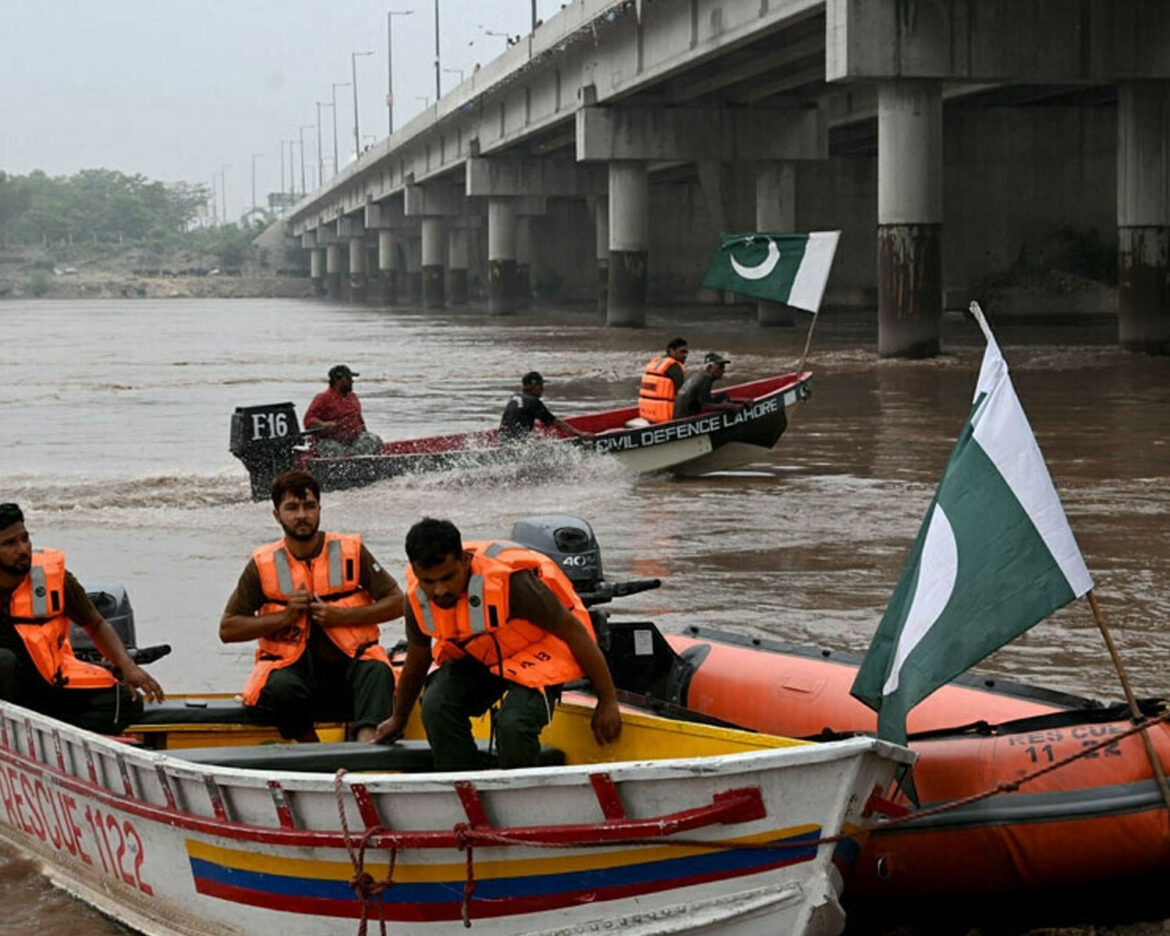The National Disaster Management Authority (NDMA) has issued an alert for potential floods and landslides as varying intensities of rain are expected in different parts of the country, including Gilgit-Baltistan and Azad Kashmir, in the first week of July.
Heavy Rains and Flash Floods Expected
According to the NDMA forecast, moderate to heavy rains may increase water flows in nullahs, streams, and rivers, causing flash flooding in low-lying areas. The monsoon rains may also trigger hill torrents in Dera Ismail Khan, Dera Ghazi Khan, and Rajanpur, along with the Suleman and Kirthar mountain ranges. Additionally, there is a risk of urban flooding in major cities.
Landslide Risks in Hilly Regions
The anticipated rains could also lead to landslides in vulnerable areas such as Murree, Galiyat, Azad Kashmir, Gilgit-Baltistan, and the mountainous regions of Khyber Pakhtunkhwa and Balochistan.
Warnings for Glacial Lake Outburst Floods
Rising temperatures and increased rainfall in Gilgit-Baltistan and Khyber Pakhtunkhwa are expected to trigger Glacial Lake Outburst Flood (GLOF) events in at-risk valleys.
Potential Structural Damages
The NDMA has warned that dust, wind, and thunderstorms, accompanied by heavy showers, may damage structures such as electrical poles, solar panels, hoardings, trees, and under-construction buildings. Citizens, especially travellers and tourists, are advised to check weather forecasts and flood conditions, follow precautionary measures, and consider alternative travel routes.
Rainfall Relief in Twin Cities
Residents of Rawalpindi and Islamabad experienced relief from the sweltering heat on Sunday evening after rainfall in various areas. The temperature in Islamabad dropped by five degrees Celsius, from 41°C to 36°C, during the evening. The downpour, which started around 3:20 pm and continued till 4:10 pm, did not cause a significant rise in the water level of Rawalpindi’s Leh Nullah.
For the past week, temperatures had remained over 40°C, causing significant discomfort and forcing residents to stay indoors during the afternoons.
Weather Forecast for the Coming Days
An official reported that continental air is prevailing over most parts of the country with a shallow westerly wave affecting upper areas. Hot and dry weather is expected in most parts of the country, but isolated thunderstorms and rain are likely in Khyber Pakhtunkhwa, northeast Punjab, the Potohar region, Islamabad, northeast Balochistan, southeast Sindh, Gilgit-Baltistan, and Kashmir on Monday.
Persistent Heatwave in Karachi
The highest temperature on Sunday was recorded in Chhor and Jacobabad at 46°C, followed by 45°C in Dadu, Hafizabad, and Turbat, and 44°C in Bhakkar, Sakrand, and Shaheed Benazirabad. Karachi continued to experience extreme heat with temperatures reaching 40.6°C and relative humidity at 54%.
The Met Department has forecasted that the hot weather pattern will persist for the next three days, with maximum temperatures ranging between 38 and 40°C. Chief Meteorologist Dr. Sardar Sarfaraz explained that the hot weather is due to dry, continental winds following the westerly wave and that this pattern will continue for at least three to four days in Karachi. The monsoon season is expected to start in southeast Sindh in the first week of July.



